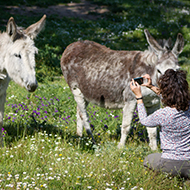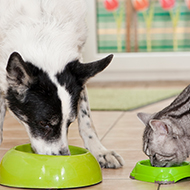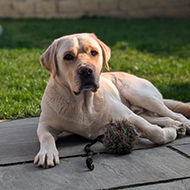Conservation plan aims to reverse decline of species
A new action plan developed by a number of experts and organisations, is aiming to reverse the decline of the Scottish wildcat within six years.
Groups of land managers, conservationists and researchers have agreed a range of measures address the issues facing this species, including an attempt to reduce their chances of cross-breeding with domestic and feral cats, as well as contracting diseases.
Part of the project involves ensuring that cat owners living in wildcat "hotspots" are aware of the importance of having their cats neutered and vaccinated.
Vets, gamekeepers and farmers will be key in helping to deliver certain elements of the project, which is to receive funding from the Heritage Lottery Fund.
A breeding programme will also be set up in order to boost wild populations in the future, and further research will be undertaken to improve understanding of their genetics and ecology.
Speaking before the project's Edinburgh launch, environment minister of Scotland, Paul Wheelhouse, said: “The success of the plan will depend not just on the project partners but on the uptake by individuals, such as gamekeepers, farmers, and, crucially, we will rely heavily on the assistance of Scotland's cat owners in preventing hybridisation of the species."
The Royal Zoological Society of Scotland and The Aspinall Foundation are developing plans for a conservation breeding programme that draws on existing captive collections where suitable animals exist. This has been given careful consideration, and is likely to require a licence given the current status of wild populations.
Ron Macdonald from Scottish Natural Heritage, said: "This is an effective partnership of many quite separate organisations who represent a range of interests.
"We are all committed to conserving this rare and elusive species. And though we do not currently have reliable estimates for the number of wildcats remaining in the wild, everyone agrees there is now some urgency to address the threats they face."






 RCVS Knowledge has called on vet practices to audit their post-operative neutering outcomes.
RCVS Knowledge has called on vet practices to audit their post-operative neutering outcomes.
